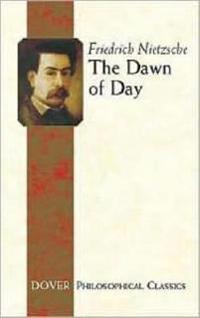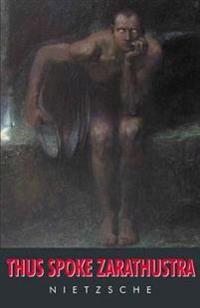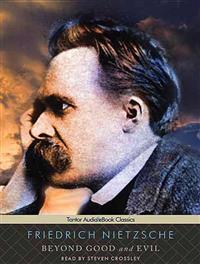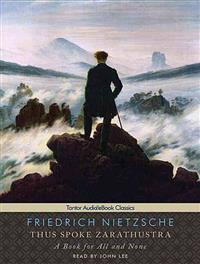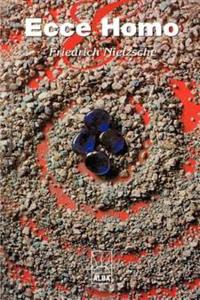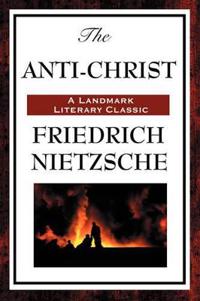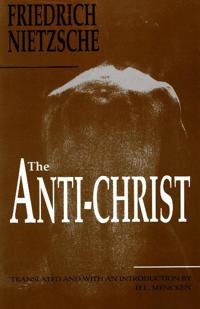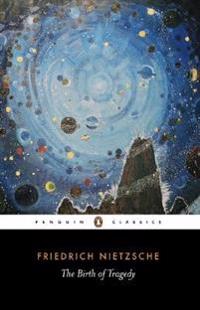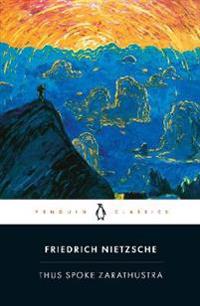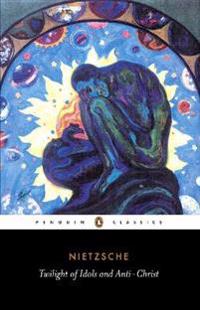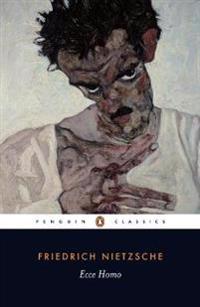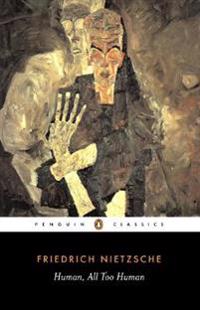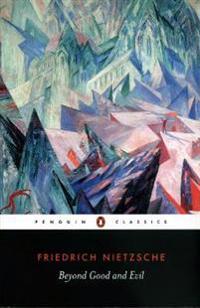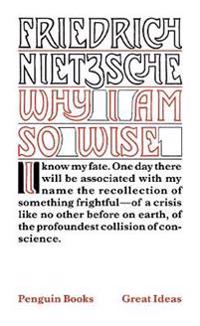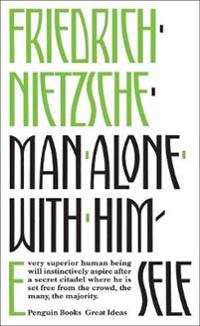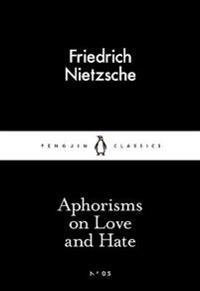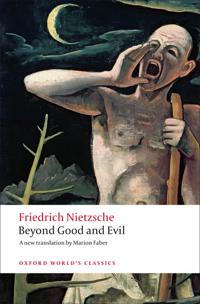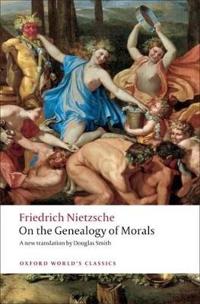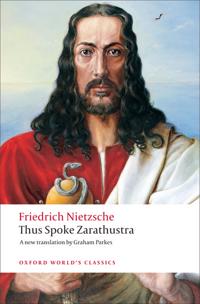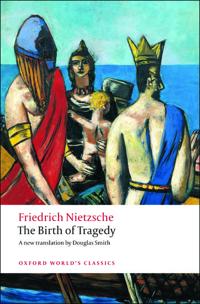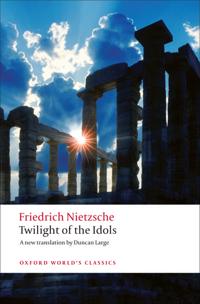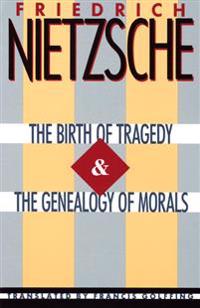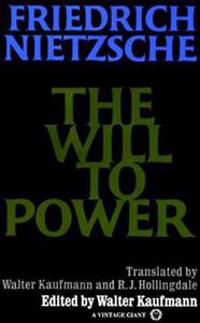The Dawn of Day (Pocket)
avFriedrich Wilhelm Nietzsche, J. M. Kennedy, Friedrich Wilhelm Nietzsche
ISBN: 9780486457246 - UTGIVEN: 200706Thus Spoke Zarathustra (Pocket)
avFriedrich Wilhelm Nietzsche, Stephen Metcalf, Friedrich Wilhelm Nietzsche
ISBN: 9780983884217 - UTGIVEN: 201205Written in a series of frenzied bursts between 1883 and 1885, Thus Spoke Zarathustra is Friedrich Nietzsche's masterpiece. It is also one of the most controversial books in the history of European literature - a founding classic of modernism in philosophy and poetics, which promised to "break the hi[...]
Beyond Good and Evil (CD-bok)
avFriedrich Wilhelm Nietzsche, Steven Crossley, Friedrich Wilhelm Nietzsche
ISBN: 9781452601649 - UTGIVEN: 201103Thus Spoke Zarathustra (CD-bok)
avFriedrich Wilhelm Nietzsche, John Lee, Friedrich Wilhelm Nietzsche
ISBN: 9781452602561 - UTGIVEN: 201105Thus Spoke Zarathustra, the most famous and influential work of Friedrich Nietzsche, is a philosophical novel that articulates the themes central to Nietzsche's mature thought---a rejection of religious morality, the will to power, and the idea of the "overman"---through the religious prophet-like c[...]
Ecce Homo / Ecce Homo (Pocket)
avFriedrich Wilhelm Nietzsche, M. Dolores Franco, Friedrich Wilhelm Nietzsche
ISBN: 9781583488300 - UTGIVEN: 1999-12The Anti-Christ (Inbunden)
avFriedrich Wilhelm Nietzsche, H. L. (TRN) Mencken, Friedrich Wilhelm Nietzsche
ISBN: 9781604593273 - UTGIVEN: 2008-04The Anti-Christ (Pocket)
avFriedrich Wilhelm Nietzsche, H. L. Mencken, Friedrich Wilhelm Nietzsche
ISBN: 9781884365201 - UTGIVEN: 199908This is Nietzsche's last book and a fitting capstone to his career. It's succinct, biting, and encapsulates the criticisms of Christianity found in his other works. This edition contains an 8,000-word introduction by its translator, the famous iconoclastic writer H. L. Mencken.[...]
On Truth and Untruth (Häftad)
avFriedrich Wilhelm Nietzsche, Taylor Carman
ISBN: 9780061990465 - UTGIVEN: 201012This is Nietzsche's celebrated essay, in which he argues that truth is an illusion. Those ideas commonly agreed to be truths, according to Nietzsche, are mere beliefs and arbitrary constructions of human thought. From the Stanford Encyclopedia of Philosophy: Scholars regard Nietzsche's 1873 unpublis[...]
The Birth of Tragedy (Storpocket)
avFriedrich Wilhelm Nietzsche
ISBN: 9780140433395 - UTGIVEN: 199305A compelling argument for the necessity for art in life, Nietzsche's first book is fuelled by his enthusiasms for Greek tragedy, for the philosophy of Schopenhauer and for the music of Wagner, to whom this work was dedicated. Nietzsche outlined a distinction between its two central forces: the Apoll[...]
Thus Spoke Zarathustra (Storpocket)
avFriedrich Wilhelm Nietzsche
ISBN: 9780140441185 - UTGIVEN: 197402Nietzsche was one of the most revolutionary and subversive thinkers in Western philosophy, and "Thus Spoke Zarathustra" remains his most famous and influential work. It describes how the ancient Persian prophet Zarathustra descends from his solitude in the mountains to tell the world that God is dea[...]
Twilight of Idols and Anti-Christ (Storpocket)
avFriedrich Wilhelm Nietzsche
ISBN: 9780140445145 - UTGIVEN: 199001"Twilight of the Idols", an attack on all the prevalent ideas of his time, offers a lightning tour of his whole philosophy. It also prepares the way for "The Anti-Christ", a final assault on institutional Christianity. Both works show Nietzsche lashing out at self-deception, astounded at how often m[...]
Ecce Homo (Storpocket)
avFriedrich Wilhelm Nietzsche
ISBN: 9780140445152 - UTGIVEN: 199211In late 1888, only weeks before his final collapse into madness, Nietzsche (1844 1900) set out to compose his autobiography, and Ecce Homo remains one of the most intriguing yet bizarre examples of the genre ever written. In this extraordinary work Nietzsche traces his life, work and development as [...]
Human, All Too Human (Storpocket)
avFriedrich Wilhelm Nietzsche
ISBN: 9780140446173 - UTGIVEN: 199409Written after Nietzsche had ended his friendship with Richard Wagner and had been forced to leave academic life through ill health, Human, All Too Human (1878) can be read as a monument to his personal crisis. It also marks the point when he matured as a philosopher, rejecting the German romanticism[...]
Beyond Good and Evil (Storpocket)
avFriedrich Wilhelm Nietzsche
ISBN: 9780140449235 - UTGIVEN: 200302"Beyond Good and Evil" confirmed Nietzsche's position as the towering European philosopher of his age. The work dramatically rejects the tradition of Western thought with its notions of truth and God, good and evil. Nietzsche demonstrates that the Christian world is steeped in a false piety and infe[...]
Why I am So Wise (Pocket)
avFriedrich Wilhelm Nietzsche
ISBN: 9780141018973 - UTGIVEN: 200409Throughout history, some books have changed the world. They have transformed the way we see ourselves and each other. They have inspired debate, dissent, war and revolution. They have enlightened, outraged, provoked and comforted. They have enriched lives and destroyed them. Now Penguin brings you t[...]
Man Alone with Himself (Pocket)
avFriedrich Wilhelm Nietzsche
ISBN: 9780141036687 - UTGIVEN: 200808Friedrich Nietzsche was one of the most revolutionary thinkers in Western philosophy. Here he sets out his subversive views in a series of aphorisms on subjects ranging from art to arrogance, boredom to passion, science to vanity, rejecting conventional notions of morality to celebrate the individua[...]
Aphorisms on Love and Hate (Häftad)
avFriedrich Wilhelm Nietzsche
ISBN: 9780141397900 - UTGIVEN: 2015-02'We must learn to love, learn to be kind, and this from our earliest youth...Likewise, hatred must be learned and nurtured, if one wishes to become a proficient hater.' This volume contains a selection of Nietzsche's brilliant and challenging aphorisms, examining the pleasures of revenge, the falsit[...]
Beyond Good and Evil (Pocket)
avFriedrich Wilhelm Nietzsche, Marion (TRN) Faber, Robert C. (INT) Holub
ISBN: 9780192832634 - UTGIVEN: 1999-02'What is done out of love always takes place beyond good and evil.' Always provocative, the Friedrich Nietzsche of Beyond Good and Evil (1886) is at once sceptical psychologist and philosopher-seer, passionately unmasking European society with his piercing insights and uncanny prescience. This maste[...]
Beyond Good and Evil (Pocket)
avFriedrich Wilhelm Nietzsche, Marion Faber, Robert C. Holub
ISBN: 9780199537075 - UTGIVEN: 200901'What is done out of love always takes place beyond good and evil.' Always provocative, the Friedrich Nietzsche of Beyond Good and Evil (1886) is at once sceptical psychologist and philosopher-seer, passionately unmasking European society with his piercing insights and uncanny prescience. This maste[...]
On the Genealogy of Morals (Häftad)
avFriedrich Wilhelm Nietzsche
ISBN: 9780199537082 - UTGIVEN: 200808'Reason, seriousness, mastery over the emotions, the whole murky affair which goes by the name of thought, all the privileges and showpieces of man: what a high price has been paid for them! How much blood and horror is at the bottom of all "good things!"' On the Genealogy of Morals (1887) is a book[...]
Thus Spoke Zarathustra (Häftad)
avFriedrich Wilhelm Nietzsche
ISBN: 9780199537099 - UTGIVEN: 200808'The profoundest book there is, born from the innermost richness of truth, an inexhaustible well into which no bucket descends without coming up with gold and goodness.' Thus Spoke Zarathustra (1885) was Nietzsche's own favourite among all his books and has proved to be his most popular, having sol[...]
The Birth of Tragedy (Häftad)
avFriedrich Wilhelm Nietzsche
ISBN: 9780199540143 - UTGIVEN: 200806'Yes, what is Dionysian? - This book provides an answer - "a man who knows" speaks in it, the initiate and disciple of his god.' The Birth of Tragedy (1872) is a book about the origins of Greek tragedy and its relevance to the German culture of its time. For Nietzsche, Greek tragedy is the express[...]
Twilight of the Idols (Häftad)
avFriedrich Wilhelm Nietzsche
ISBN: 9780199554966 - UTGIVEN: 200810'Anyone who wants to gain a quick idea of how before me everything was topsy-turvy should make a start with this work. That which is called idol on the title-page is quite simply that which was called truth hitherto. Twilight of the Idols - in plain words: the old truth is coming to an end...' Nietz[...]
The Will to Power (Häftad)
avFriedrich Wilhelm Nietzsche
ISBN: 9780394704371 - UTGIVEN: 197306Represents a selection from Nietzche's notebooks to find out what he wrote on nihilism, art, morality, religion, and the theory of knowledge, among others.[...]

